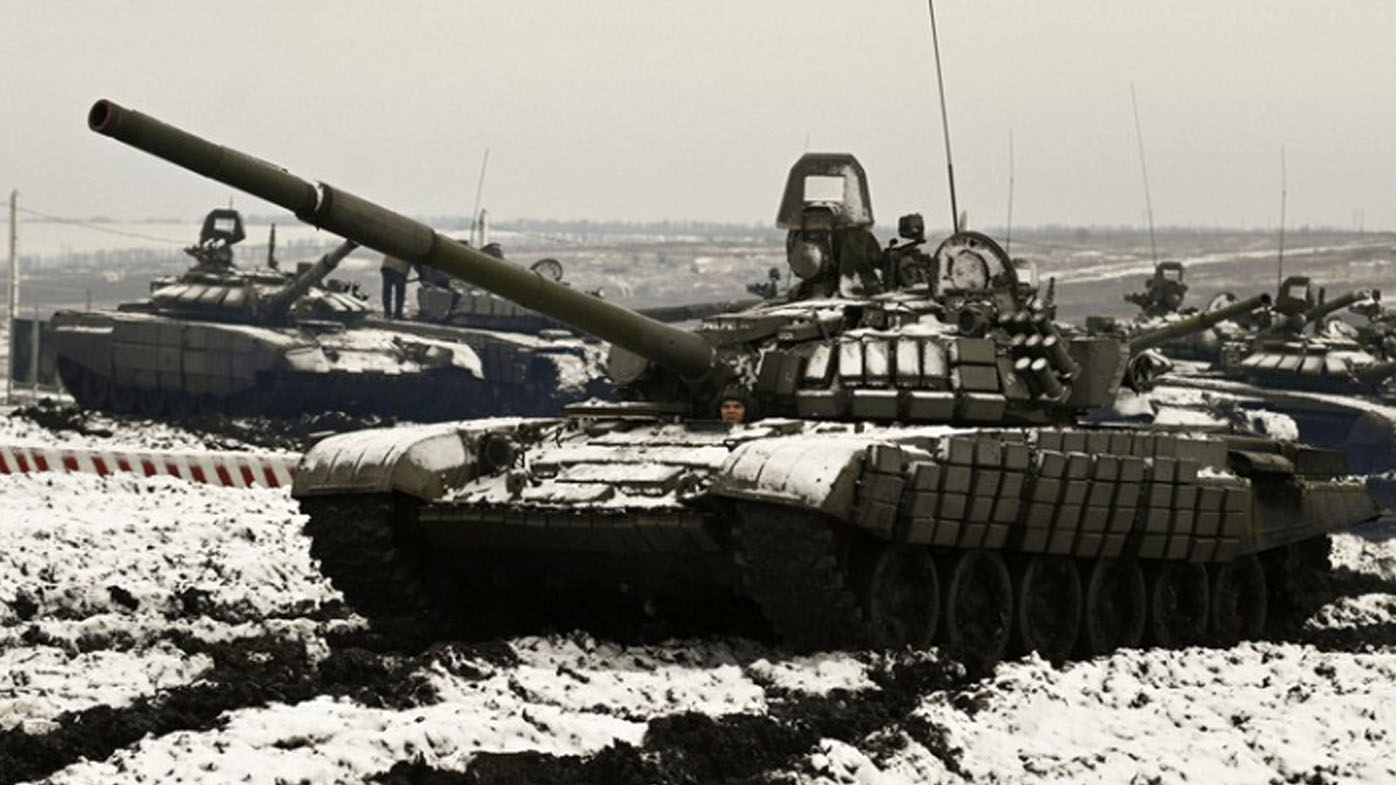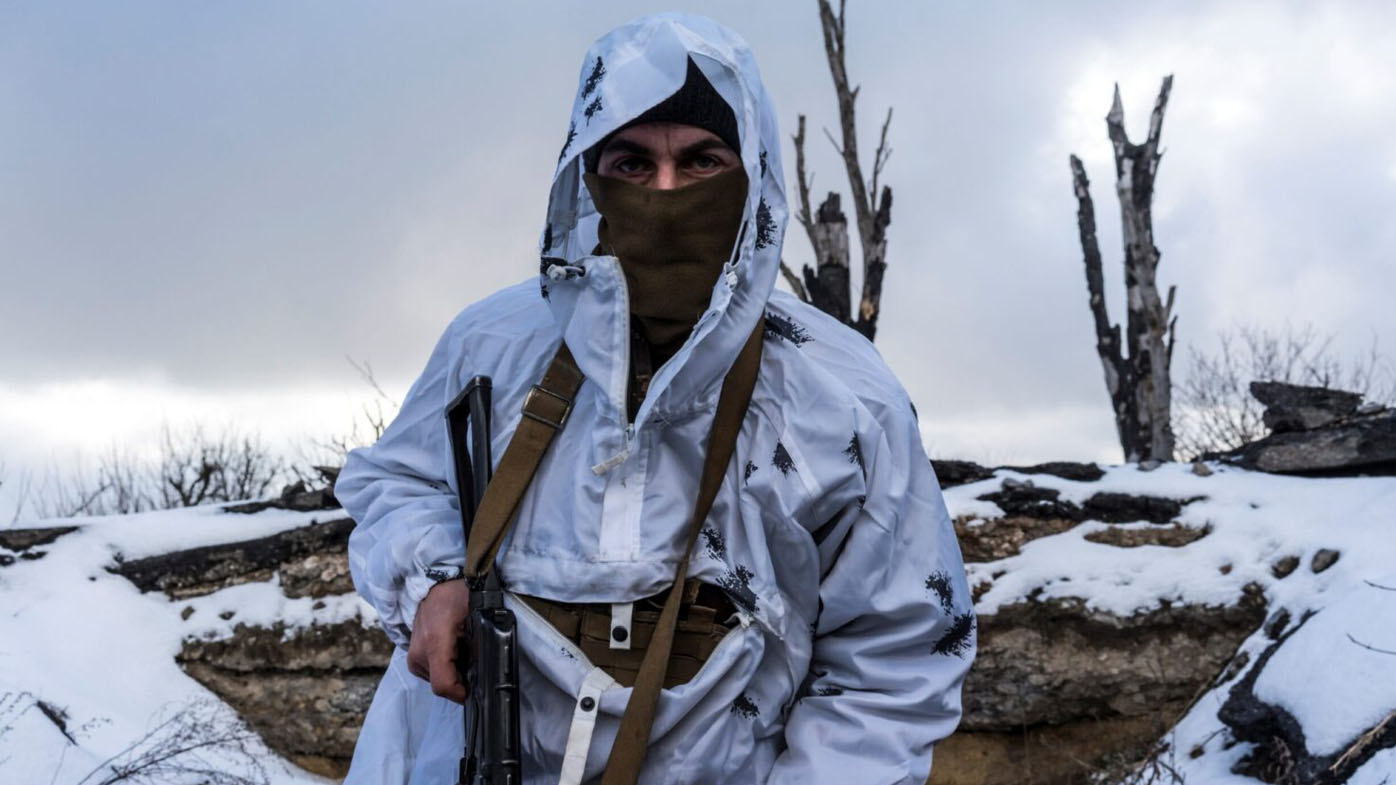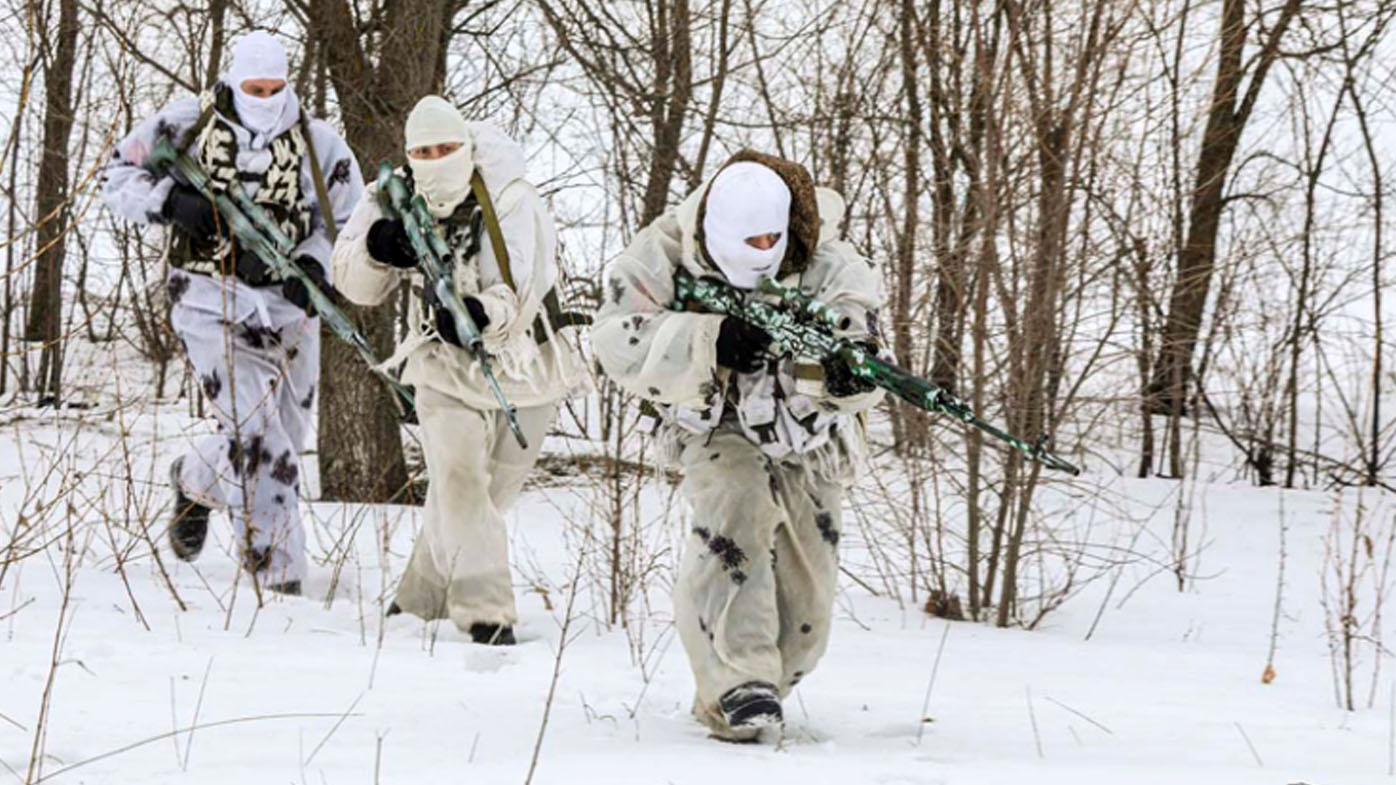The looming winter in Ukraine will pose new challenges for military commanders of both sides, while the conflict's impacts continue to be felt beyond the battlefield.
Rainy autumnal weather is already bringing muddy conditions that are starting to limit the mobility of tanks and other heavy weapons, experts say.
But in the coming months there will also be temperatures dropping as low as -20 degrees, snow falls and shortening daylight for generals to contend with.
READ MORE: Russia drafting retirees into army, telling conscripts to buy their own supplies

Armies limited by snow and mud
Defence analyst Malcolm Davis, of the Australian Strategic Policy Institute, told 9news.com.au these factors will make the conflict more static.
"The winter weather will basically bring the war to a standstill ... both sides will be digging in until about late February when the thaw begins," he said.
While tanks and other armoured vehicles will be harder to deploy in the mud and snow, other equipment such as military-grade drones will be largely unaffected.
The advantage on the battlefield remains with Ukraine forces after their counteroffensive, launched in late August, has rolled back the Russian occupation across large areas of the northeast.
Western supplied weapons have proved crucial in Ukraine's military successes.
A standout has been the US-supplied HIMARS multiple rocket launchers have been able to accurately pound strategic targets such as bridges as well as targeting Russian positions up to 80km away.
READ MORE: Leaks on Russian gas pipelines raise concerns about sabotage

Davis said the challenge for European countries during the coming months is to continue the flow of weapons to Ukraine.
"They recognise that if Russia somehow does succeed in Ukraine, then the threat will come back to haunt them elsewhere potentially in the Baltic states or against Poland," he said.
"For the Europeans, the best path is to stay firm with the Americans and with the Ukrainians and continue to supply those weapons to Ukraine to ensure a quick defeat of Russian forces."
But for Russia's military, the harsher winter conditions in Ukraine will be a stern test after its forces were pushed back by lightning Ukrainian offensives.
Russian commanders are already struggling with equipment losses, mounting casualties and weakening morale.
There are also social media reports Russian soldiers are lacking effective winter military clothing.
READ MORE: 'Extraordinary' scenes as massive storm lands in Florida

The Kremlin plans to add 300,000 soldiers to its invasion force after it issued a partial military mobilisation of reservists earlier this month.
But it has sparked outraged protests, a fearful exodus and acts of violence against military recruiters across the vast country.
And there is doubt over the quality of any new wave of Russian conscripts and the equipment they have been given.
Some reports this week said they were being issued wit pre-World War II rifles to face the well equipped and motivated Ukrainian army.
Russia is also set to target Ukraine's electrical infrastructure, as the Kremlin seeks to ramp up the pressure on civilians already suffering after seven months of fighting.
Ukrainian President Volodymyr Zelenskyy warned that this winter "will be very difficult".
"They will shoot missiles, and they will target our electric grid," he said.
Weaponising gas supplies
It's long been evident that part of the Kremlin's strategy is to knee-cap European resolve in supporting Ukraine by plunging it into an energy crisis, literally turning off the gas taps.
At a forum in Vladivostok earlier this month, Russian President Vladimir Putin said: "We will not supply anything at all if it is contrary to our interests. No gas, no oil, no coal, no fuel oil, nothing."
Davis said after battlefield defeats, Putin is desperate to see western support for Ukraine crumble as the costs of war, including energy shortages and rising prices, begin to hit home in Europe.
But the coming winter will be the acid test of Moscow's energy squeeze.
Rather than looking for compromise, European governments have concluded that concessions would only embolden the Kremlin.
"I think that Europe recognises the threat that Russia poses now ... and that Putin has to be defeated or the threat will come back to haunt them, perhaps in the Baltic or Poland," Davis said.
from 9News https://ift.tt/PJxW2VM
via IFTTT
Comments
Post a Comment